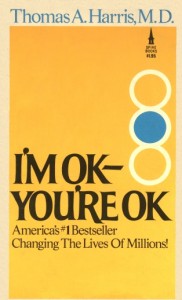 Somebody has quipped, “America is a Protestant country. Even the Catholics are Protestant.”
Somebody has quipped, “America is a Protestant country. Even the Catholics are Protestant.”
It can’t be avoided. Protestantism has been a pervasive influence on the formation of America’s consciousness. I’m thinking particularly about the Calvinistic strain of negativity that seems to be woven into the genetic code of Americans.
On the surface we are a pragmatic, optimistic and positive people, but scratch the surface and there is a self loathing pessimism. Despite the wonderful, rich, healthy technologically whizzy world we have created there resides deep down a belief that there’s something wrong, and not wanting to admit that the problem is with us we look elsewhere to shift the blame.
Part of this is simply human nature, but part of it is also our Calvinistic heritage, and I’m thinking specifically of that heresy called “Total Depravity.” Yes, I know it sounds like one of those bad Arnold Schwarzenegger films, but “Total Depravity” is the idea that we are completely dead in our sin, that there is nothing good in us and that there is nothing we can do to approach God.
The Reformers taught this in reaction to what they perceived as Catholics trying to earn their salvation through works, but let this be a caution–any doctrine formed in reaction or as a correction to another doctrine is bound to be an equal and opposite heresy.
Yes, the idea that you can be good enough to get into heaven is a heresy, but it is also a heresy that you are so bad that you can never get to heaven.
Lest we think the Protestants are all bad and we Catholics are all good, we should remember that the Catholic form of this heresy (called Jansenism) was just as potent a negative force within Catholicism.
The result of Calvinism and Jansenism was to produce a religion that was completely pessimistic about the human condition, and ironically it fostered the very legalism and religion of good works that it sought to abolish.
We grew up thinking we were bad, bad, bad and that we had to obey all the rules in order to be God’s good little boys and girls.
Now we are in a relativistic swing back in which Pop Psychology has become the new dogma. Now the opposite is true. I’m OK and you’re OK. We get fed this overly optimistic, positive thinking pablum from self help books, daytime TV, training courses and the back of cereal boxes. It’s everywhere.
But this too, is a reaction against a heresy and therefore another heresy.
The truly Catholic view is that we are created in God’s image and therefore we are good. The church teaches that by the light of natural reason we can certainly know God and come to love him. It teaches that we have an innate desire for goodness, truth and beauty and that longing needs to be nurtured because it is a longing for God our Creator and Father–in whose image each of us are created.
However, the divine image in us is wounded by sin.
This teaching about humanity is beautiful, simple and optimistic, but it is also realistic. The road to complete healing is long and difficult. It is a journey that takes a lifetime, but it is also a journey that begins in a moment.
The moment of true repentance, for repentance is not some sort of doom and gloom sorrow for our sins, but an honest and open appraisal of what is wrong and what still needs work in our souls. It is a clear assessment of the state of the our soul’s garden and which weeds still need to be pulled.
As usual, the Catholic truth confounds common sense, but it doesn’t contradict common sense.
Common sense tells us that we are not all bad through and through, but it also tells us that we are broken and need to be mended.
We are wounded and need to find Doctor Jesus and Nurse Mary.
Image Creative Commons via Bing












